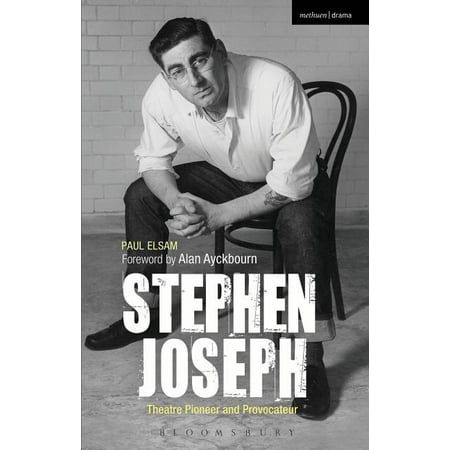
Biography and Autobiography: Stephen Joseph: Theatre Pioneer and Provocateur (Hardcover)
ID: 3W0zKM1m6j
Manufacturer: Continnuum-3pl
A 1967 obituary in The Times labelled Stephen Joseph the most successful missionary to work in the English theatre since the second world war . This radical man brought theatre-in-the-round to Britain provoked Ayckbourn Pinter and verbatim theatre creator Peter Cheeseman to write and direct and democratised theatregoing. This monograph investigates his forgotten legacy.This monograph draws on largely unsorted archival material (including letters from Harold Pinter J. B. Priestley Peggy Ramsay and others) and on new interviews with figures including Sir Alan Ayckbourn Trevor Griffiths and Sir Ben Kingsley to demonstrate how the impact on theatre in Britain of manager director and missionary Stephen Joseph has been far greater than is currently acknowledged within traditional theatre history narratives. The text provides a detailed assessment of Joseph s work and ideas during his lifetime and summarises his broadly-unrecognised posthumous legacy within contemporary theatre. Throughout the book Paul Elsam identifies Joseph s work and ideas and illustrates and analyses how others have responded to them. Key incidents and events during Joseph s career are interrogated and case studies that highlight Joseph s influence and working methods are provided -- A 1967 obituary in The Times labelled Stephen Joseph the most successful missionary to work in the English theatre since the second world war . This radical man brought theatre-in-the-round to Britain provoked Ayckbourn Pinter and verbatim theatre creator Peter Cheeseman to write and direct and democratised theatregoing. This monograph investigates his forgotten legacy. This monograph draws on largely unsorted archival material (including letters from Harold Pinter J. B. Priestley Peggy Ramsay and others) and on new interviews with figures including Sir Alan Ayckbourn Trevor Griffiths and Sir Ben Kingsley to demonstrate how the impact on theatre in Britain of manager director and missionary Stephen Joseph has been far greater than is currently acknowledged within traditional theatre history narratives. The text provides a detailed assessment of Joseph s work and ideas during his lifetime and summarises his broadly-unrecognised posthumous legacy within contemporary theatre. Throughout the book Paul Elsam identifies Joseph s work and ideas and illustrates and analyses how others have responded to them. Key incidents and events during Joseph s career are interrogated and case studies that highlight Joseph s influence and working methods are provided.

 Buy now
Buy now